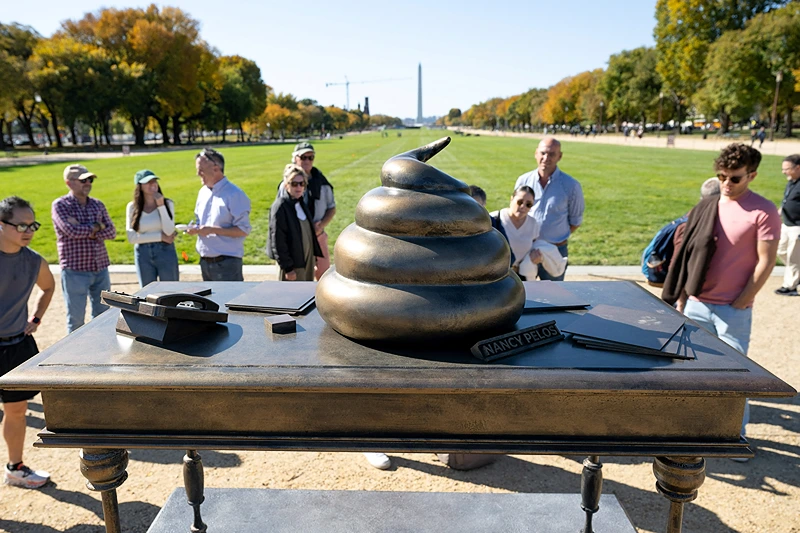The Original Sigma Male
The strange, enduring appeal of Alain Delon’s gangster films. The post The Original Sigma Male appeared first on The American Conservative.

The Original Sigma Male
The strange, enduring appeal of Alain Delon’s gangster films.

When Alain Delon died this August, I happened to be in France. I can’t say I was paying much attention to the news. How was he mourned in the papers? I have no idea. But I do remember feeling this strange sensation that, dead or alive, the actor’s figure was inescapable. One day I walked into a bookstore in a small city in Brittany, and there he was, a life-size cutout, wearing the tan raincoat and fedora of Le Samouraï, propped next to shelves showcasing the film, along with the two subsequent movies he made under Jean-Pierre Melville’s direction, Le Cercle Rouge and Un flic, and an array of other neo-noir favorites.
I found it charming that the recently deceased actor should come back so soon to haunt the bookstores of provincial France. My wife only smiled when I told her: She did not share my amusement. Whenever he comes up in conversation, she reminds me that while many women appreciate Alain Delon, the actor’s most fervent admirers are men.
It’s funny how these things work. Delon was billed as one of the great international sex symbols of his generation, with good reason. He had a perfect face, piercing eyes, and an exuberant smile—assets that won him starring parts in some of the great romances of the 1960s, notably Visconti’s Leopard and Antonioni’s L’eclisse. But his lasting appeal has proven to be of a different order entirely. Delon’s most memorable performances are those in his gangster films, of which Le Samouraï and Le Cercle Rouge are the best, where he plays smartly dressed and enigmatic criminals who came from nowhere and are going nowhere. There is a cool hardness in them. Delon’s face may be perfectly formed, but when he curls his lip and pulls the trigger of a gun, the smile is transformed into something metallic, heartless.
To the intellectually sensitive young man, alienated as much from himself as he is from his surroundings, the attraction of this Delon is often overpowering. (I have known a few to buy raincoats matching Delon’s after first seeing his Melville films.) Here, at last, is a hero who strides through the world completely unfazed by the petty rituals of daily life; he is bound only by his byzantine moral code. These attitudes shade many of Delon’s dramatic performances as well: the sadistic boyfriend in La piscine or the amoral art dealer in Monsieur Klein. It is unsurprising that his breakout role was as the first screen version of Tom Ripley, in René Clément’s Plein soleil, where he simultaneously plays the charmer and the lone wolf. You could say that Alain Delon was the original “sigma male.”
I find it funny how frequently I run into people who have gone through a serious Delon phase for this very reason. I’ve discussed the subject in bars, in airports, and on trains, sometimes with perfect strangers. A few years ago, I went down to the bank to apply for a new credit card. It was the day that Jean-Paul Belmondo had died, and I fell into conversation with the teller, an older immigrant from Tunisia, about the French films of his youth. In those days, he told me, actors such as Belmondo and Delon were heroes to every young man in the Francosphere because, in their on-screen personae, they adopted an icy insouciance when met with certain doom. That attitude seemed like the only honest way to confront the world, especially for those coming of age in former colonial outposts, where the future was as uncertain then as the present is now. It was for similar reasons that The Smiths idolized Delon on the cover of The Queen Is Dead, where his flippance in the face of uncertainty is transported to post-imperial, post-industrial England.
Of course, there are inherent limitations to this sort of character. And, once noticed, the spell is broken. To the young man who identifies with Delon, Le Samouraï is thrilling. To an older one who has a little more distance, it is just depressing. Melville wrote the movie specifically for Delon, in part, I think, because he understood that the actor could effectively convey the deep, numbing sadness that accompanies life outside of society.
In the film’s title card, Melville informs the audience that “there is no greater solitude than that of the samurai.” And for the next hour and forty-five minutes, he depicts its effects on a hitman who, for the sake of practicing his art, has chosen a diminished, monk-like existence. When he’s not shooting people, he’s feeding his bird, rearranging his water bottle collection, or straightening his fedora in the mirror, which, even when the police recognize him in it, he refuses to remove out of stubborn commitment to his bit. “He is not normal,” remarks a police commissioner investigating a murder performed by the hitman, and this observation alone convinces him of Delon’s guilt. Jim Jarmusch’s loose remake, Ghost Dog: The Way of the Samurai, spools out that observation in an extreme manner, by placing Forest Whitaker in Delon’s role as an high-functioning autistic living in New Jersey according to his own jazzed-up version of the samurai code. It’s an amusing movie, but overdone—Melville makes the same point without clinically pathologizing his characters.
Melville filmed two endings for Le Samouraï, both involving a climactic shoot-out in a jazz club. In the first version, Delon is shot, and he falls to the ground with a huge grin on his face. In the second, he is simply obliterated by the cops, and that’s that. Melville chose the second ending for the final cut, and so much the better: those who live by the lonely code of the samurai die by it.
The post The Original Sigma Male appeared first on The American Conservative.
What's Your Reaction?
















